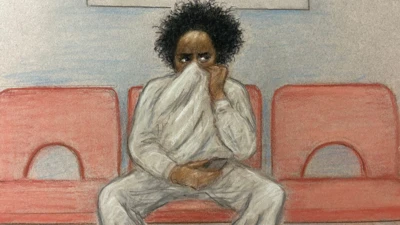We've updated our Privacy and Cookies Policy
We've made some important changes to our Privacy and Cookies Policy and we want you to know what this means for you and your data.
Measles resurgence fear amid coronavirus
Image source, Science Photo Library
- Author, Michelle Roberts
- Role, Health editor, 91ČČąŹ News online
Measles outbreaks may occur as a result of the coronavirus pandemic, officials say, because some vaccination programmes are having to be delayed.
Unicef says 117 million children in 37 countries may not get immunised on time.
There have been several large outbreaks in countries across Europe where MMR vaccine uptake has been low.
The UK has already lost its measles-free status, because of rising cases of the potentially deadly infection.
The disease, which causes coughing, rashes and fever, can be prevented by two doses of the mumps, measles and rubella (MMR) vaccine, available free to all young children in the UK.
Here, 95% of five-year-olds have had the first jab - the World Health Organization (WHO) target - but only 87.4% have had the second.
And as measles is highly infectious, even small declines in uptake can have an impact.
Image source, Reuters
The WHO says countries with no active outbreak of measles can temporarily pause their immunisation campaigns if necessary.
And 24 countries, including several already dealing with large measles outbreaks, have decided to delay because of the coronavirus pandemic: ⢠Bangladesh ⢠Brazil ⢠Bolivia ⢠Cambodia ⢠Chad ⢠Chile ⢠Colombia ⢠Djibouti ⢠the Dominican Republic ⢠the Democratic Republic of Congo ⢠Ethiopia ⢠Honduras ⢠Kazakhstan ⢠Kyrgyzstan ⢠Lebanon ⢠Maldives ⢠Mexico ⢠Nepal ⢠Nigeria ⢠Paraguay ⢠Somalia ⢠South Sudan ⢠Ukraine ⢠Uzbekistan
But Unicef says even more may face disruptions.
"If the difficult choice to pause vaccination is made due to the spread of coronavirus, we urge leaders to intensify efforts to track unvaccinated children so that the most vulnerable populations can be provided with measles vaccines as soon as it becomes possible to do so," it said
Spokeswoman Joanna Rea added: "Disruptions to routine vaccine services will increase the risk of children contracting deadly diseases, compound the current pressures on the national health services and risks a second pandemic of infectious diseases."
The UK continues to offer children MMR as part of its routine immunisation schedule.
Dr Mary Ramsay, Head of Immunisations at Public Health England, said: "The national immunisation programme is highly successful in preventing serious and sometimes life-threatening diseases, such as pneumonia, meningitis, whooping cough, diphtheria and measles.
"During this time, it is important to maintain the best possible vaccine uptake to prevent a resurgence of these infections."
Top Stories
More to explore
Most read
Content is not available








